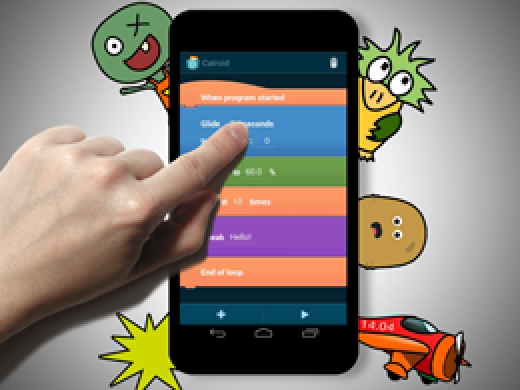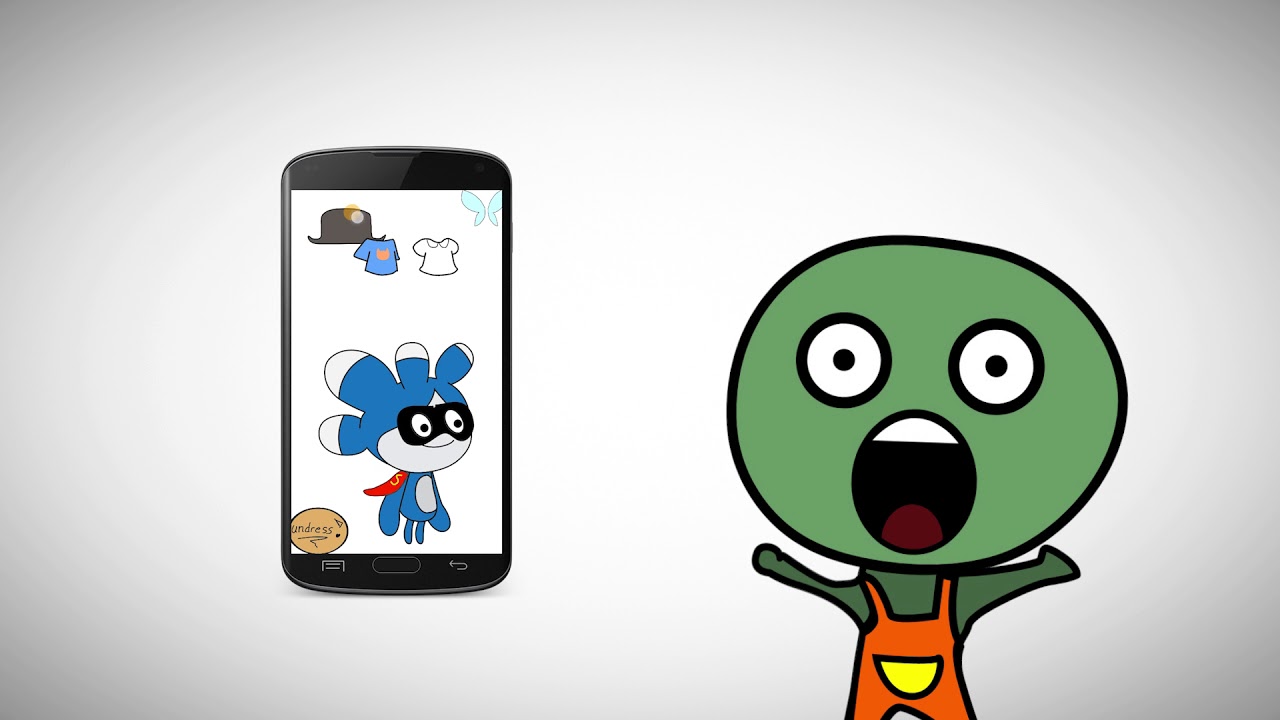Learning to code: Programming with Pocket Code
Course start: 4. June 2018
Learning to code: Programming with Pocket Code
Maria Grandl, Martin Ebner, Wolfgang Slany, Stefan Janisch
Scientific classification:
Course start: 4. June 2018
Learning to code: Programming with Pocket Code
Maria Grandl, Martin Ebner, Wolfgang Slany, Stefan Janisch
-
Scope: 5 units
-
Effort: 3 hours/week
-
Current participants: 160
-
Licence: CC BY 4.0
-
Course start: 4. June 2018
-
Course end: 31. December 2023
-
Current status: Ongoing course
-
Available languages:
Trailer
Course details
Course content
There are many prejudices and fears about programming. With the help of Pocket Code, particularly children will gain initial experience with programming. A simple and visual user interface enables a playful implementation of your own ideas.
The course is designed for children and young people (age group 10-14 years) as well as teachers of all subjects. The main content includes creating your own games, interactive animations and apps with Pocket Code. At first, the structure and functionality of the app get presented. The participants learn how to use basic programming concepts such as conditionals, variables, events or parallelism. It is up to the children whether they take the course on their own or together with their parents.
Learning goals
Participants of the course are able to implement their own ideas with the help of Pocket Code. At the end of the course the following objectives should be achieved:
- I can handle objects
- I can work with the different commands of Pocket Code
- I can solve problems using Pocket Code
- I can create my own program and save it as an app
- I can download and modify another program
Prerequisites
As it is a course for
beginners, no special previous knowledge is required.
Course schedule
The course is divided into 6 units. In each session, there will be videos explaining the basic features and tips and tricks when using Pocket Code. The main focus, however, is on practical work with Pocket Code. For this purpose, the participants get different tasks, which they have to solve individually. In addition to the videos, there are "pocket cards" which give an insight into the functionality of the different command blocks.
Certificate
For actively participating in the course you will receive an automatic confirmation of participation (certificate) which includes your username, the course title, course duration as well as the hours required to complete the course. We want to point out that this certificate merely confirms that the user answered at least 75% of the self-assessment questions correctly.
Licence
This work is licensed under a Creative Commons - 4.0 International (CC BY 4.0)
Additional content
Course Instructor
Maria Grandl, Martin Ebner, Wolfgang Slany, Stefan Janisch


Maria Grandl is with the Institute for Interactive Systems and Data Science at the Graz University of Technology and writes a dissertation on basic computer science education. As part of her teaching degree in computer science and maths, she has held various coding workshops and computer courses for pupils. At the moment she is working on an open school book for the subject computer science and is doing research on educational computer science.
Stefan Janisch holds a master's degree in sports science and a diploma in computer science and sports. He is part of the video team of the service department Educational Technology.
Prof. Wolfgang Slany works at the Institute for Software Technology at the Graz University of Technology, where he has been responsible for the development of the Pocket Code for many years. The Catrobat project is developing the visual programming language for all target groups. In an interview, he explains why he dedicates himself to this project: https://www.youtube.com/watch?v=Cz0Tg7TsLd
Martin Ebner heads the service department Educational Technology at Graz University of Technology and is responsible for all university-wide e-learning activities. His fields of research include e-learning, mobile learning, learning analytics, social media and open educational resources. He has held a variety of lectures, workshops and keynotes at international conferences. For publications as well as further research activities, please visit: http://martinebner.at



